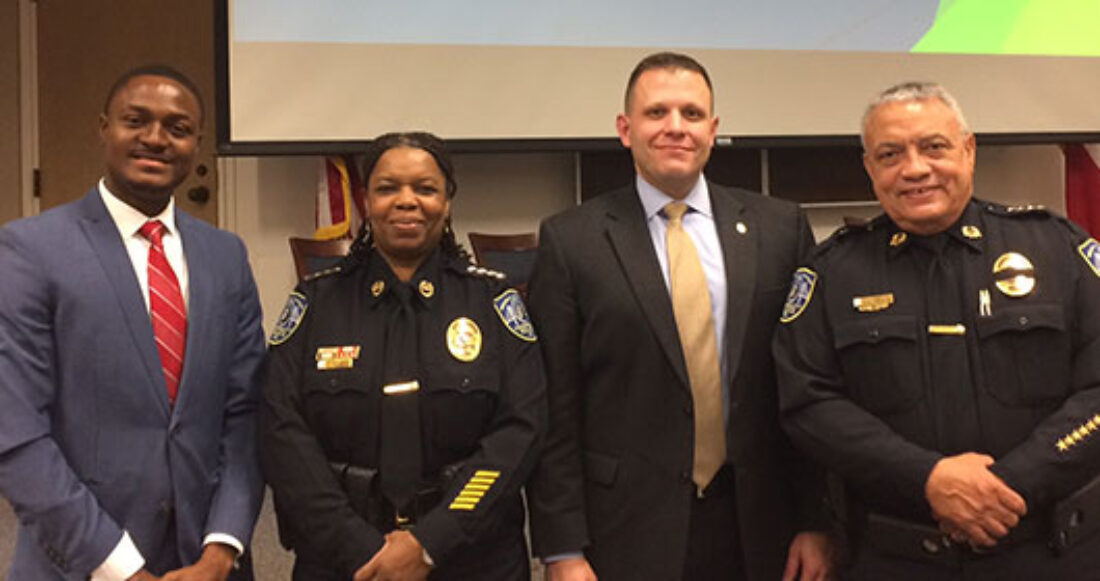One Georgia County Reimagines Its Response to Juvenile Delinquency

Like every county in the United States, Chatham County, Georgia ― home to Savannah ― has a certain number of youth on the precipice of serious delinquent behavior. But while these young people often would end up incarcerated in juvenile facilities, Chatham County is taking a different approach, developing innovative ways to more accurately assess needs and risks. Already, it is producing better outcomes for youth while improving public safety.
The Casey Foundation is providing strategic support and technical assistance to Chatham County as part of the Foundation’s commitment to reducing the incarceration of youth who do not pose a risk to community safety. These efforts stem from research that shows positive relationships and activities have a beneficial effect on young people, and are worth a community’s investment.
Chatham County’s work is part of Georgia’s broader juvenile reform effort, begun by Gov. Nathan Deal in 2012. With strategic support from a Foundation team, the Chatham County Juvenile Court has spearheaded a collaborative effort among the Savannah-Chatham Metropolitan Police Department, Savannah-Chatham County Public Schools, business representatives and other stakeholders. The initiative seeks to give positive direction and supervision to youth in the community.
To generate support from the broader community, the juvenile court, police department and school system hosted two Community Safety Forums. More than 200 people attended each forum and learned about the population of youth in need of collective problem solving due to chronic truancy and school suspensions, repeated run-ins with law enforcement, violations of probation or commitment by juvenile court.
The effort includes adopting tools and developing mechanisms aimed at providing more information to law enforcement, intake professionals, probation officers and judges to understand the youth who appear before them. As a result of the revised juvenile justice code that went into effect on January 1, 2014, new risk assessment tools help decision makers identify those youth who are likely to reoffend and who require more attention and support.
The impact of these efforts is impressive. In the past two years, overall referrals of youth to Chatham County Juvenile Court have declined by more than 30%, while school referrals in particular have decreased by 50%. Technical probation violations have been reduced by more than 75%, and commitments to the state Department of Juvenile Justice have gone down by 48%.
“We’re encouraged by the direction we are now taking to be more intentional in spending precious and scarce resources with those who are engaged in risky behavior that compromises safety,” says LeRoy Burke III, presiding judge of the Chatham County Juvenile Court.
In addition, the collaborative is:
- exploring ways to better assess a young person’s needs without waiting for him or her to wind up on a juvenile court docket or a probation officer’s caseload;
- studying restorative practice as a way to promote accountability and address harm caused in a holistic way;
- analyzing and sharing data to hone in on specific high-need zip codes in hopes of more effectively targeting local resources; and
- hoping to create a year-long paid work-readiness program to provide enrichment activities, job-skill development and connections to positive adults for youth who are in need of a more intensive intervention.
As referrals to juvenile courts decrease locally and nationally, and youth assessed as low risk are diverted from the system more frequently, young people who remain under the supervision of juvenile justice systems will require more specialized consideration. Localities will need to work together to create a continuum of options to address complex needs in the community. Places like Chatham County are on the right track, and if successful will play a critical role in the larger effort to reimagine how we respond to delinquency both in the community and in an out-of-home setting.






